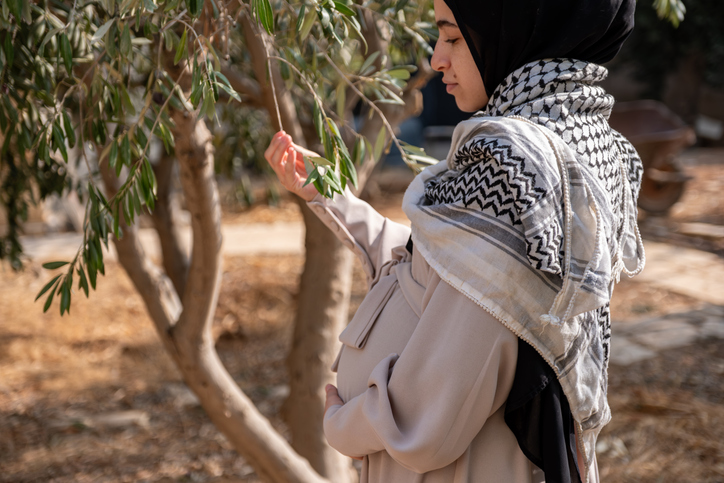Gaza's trees now bear a strange fruit
April 14, 2025
Nobody following the real news, and aware of the long history of colonial occupation, ever believed that Zionist Israel would proceed into the second phase of the ceasefire as agreed.
Nor did its typical inversion tactics — accusing Hamas of refusing to release the hostages, then using this accusation as its justification for resumption of the Gaza blockade — come as any surprise.
How often have I heard people, frequenting the Free Palestine rallies, say: “When you think it can’t possibly get any worse, something happens proving that it can”.
This sentiment refers in the first place to the extremity of Israel’s depravity and barbarity. It also reflects our utter astonishment at the lack of an adequate response from the Australian Government, and at the unwillingness of the mainstream media to provide true coverage and serious analysis of the unfolding of events. Things that take one’s breath away.
The genocidal onslaught in Gaza recommenced with a vengeance. Israel’s leaders resorted yet again to collective punishment. First, they prohibited all aid from entering Gaza. Then they cut off Gaza’s electricity supply, effectively condemning the population to death by starvation, dehydration and disease.
Displacements were enforced yet again, followed by bombardments on such a devastating scale that Israel might as well have dropped a nuclear bomb.
Since 18 March, at least 100 children per day have been injured or killed. The US-supplied mega bombs have the capacity to “pancake” buildings. People are “evaporated”, or shot up into the air to come back down again in small pieces.
I could not help thinking of that soul-stirring song made famous by Billie Holiday. Strange Fruit. She sang it, and kept on singing it, inspite of the risks to herself. In fact, her insistence on singing it landed her in jail and contributed to her early death.
The time of segregation and apartheid in the southern states, under Jim Crow, gave birth to the Civil Rights movement in the US. In our time, the beast of racism, oppression and white supremacy has taken on monstrous proportions and has become a threat to us all. Consequently, resistance (or intifada) has quickly developed into a global movement. The people at the rallies worldwide know this very well when they chant: “In our thousands, in our millions, we are all Palestinians.”
Channeling my own outrage, I adapted Billie’s famous protest song for our time:
Gaza’s trees bear a strange fruit Blood on the leaves and blood at the root Bodies dangling in a Mediterranean breeze Strange fruit hanging from twisted trees
Gaza, ruby of the valiant Levant Your torn lips mumble haunting chants Your famous strawberries, sweet and fresh Red with the juice from shredded flesh
Here is a fruit for no one to eat For no rain to wash, no sun to delete All the world should see it, make us cry Shake us and wake us from just standing by
Israel’s continued impunity depends not only on the complicity of its Western allies, but also on the distortion of truth and the oppression of dissent. While the people in Gaza suffer and are pushed to extinction, it is presumed we would accept the normalisation of violence and silence. If we don’t, we risk being bullied, fired, smeared, doxxed, slapped with court cases, deported, you name it. Another type of horror that will take your breath away.
But truth and dissent are stubborn. Even as Australia’s Government makes no shift in its policy on Israel/Palestine, and our public institutions in the education, communication and arts sectors are buckling under Zionist pressure, we can be sure that truth will not die and dissent will not be suffocated.
So let us recover our breath, break the silence, expose the violence, and work together towards justice and peace for all.

